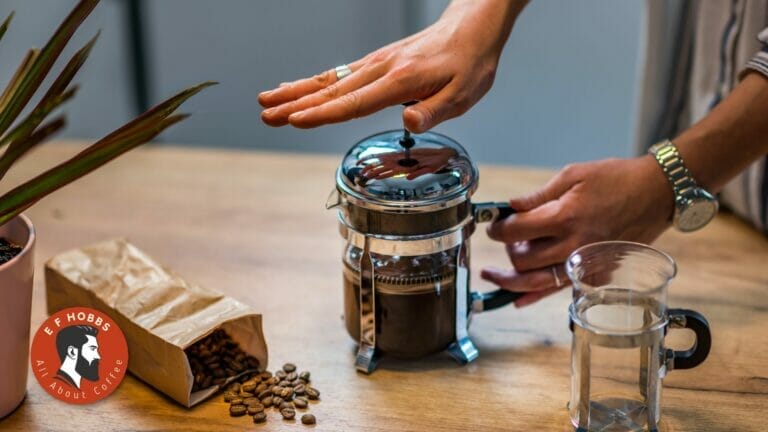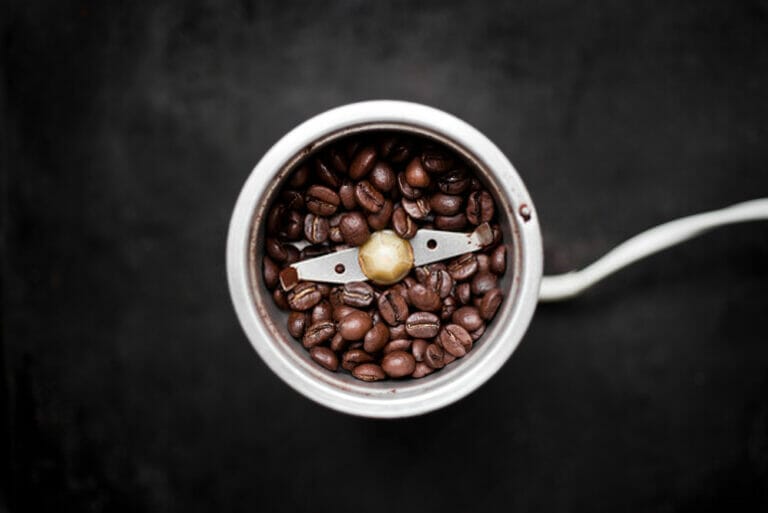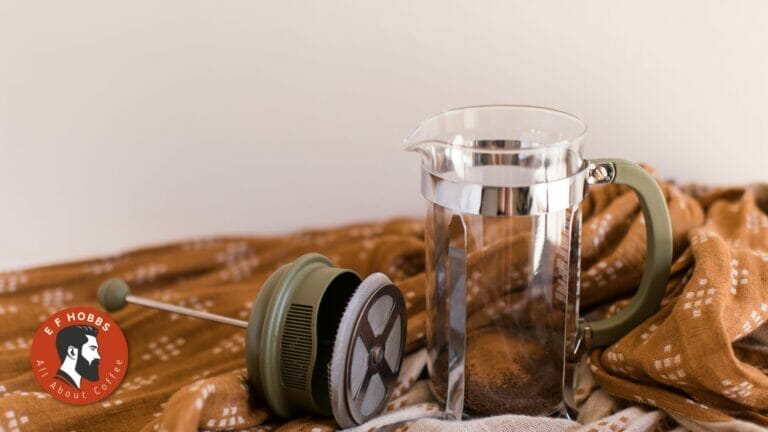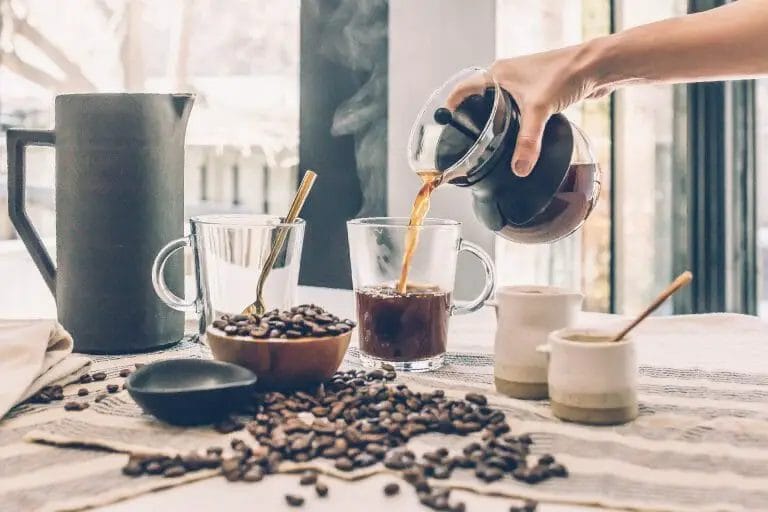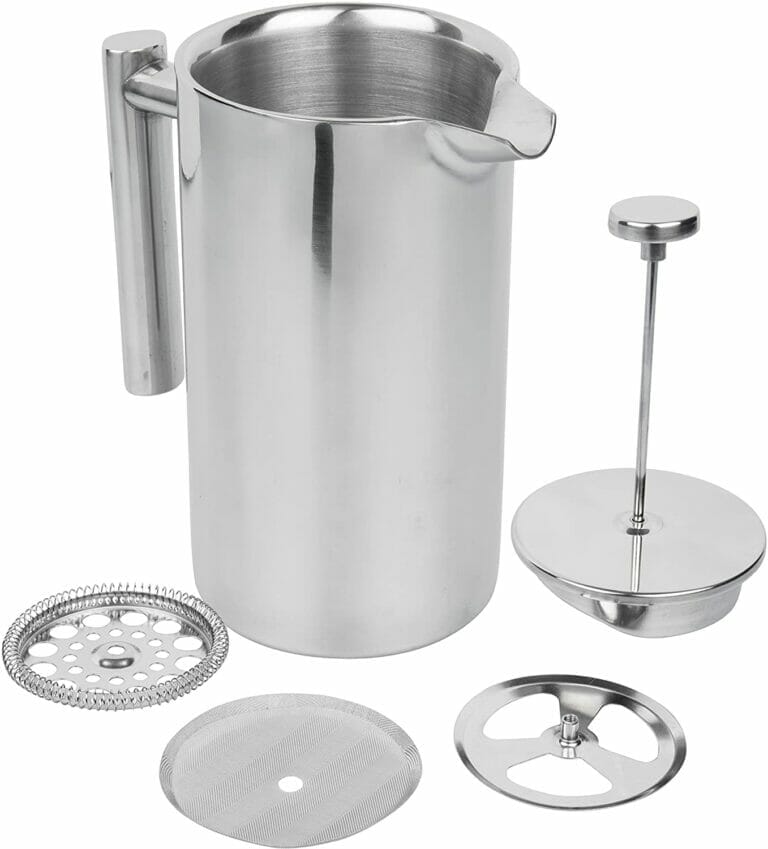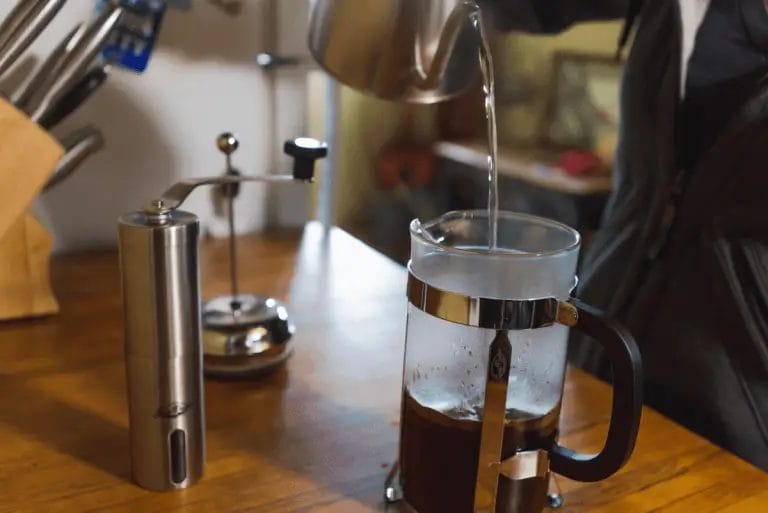How Long Should I Brew In French Press: Your Ultimate Guide
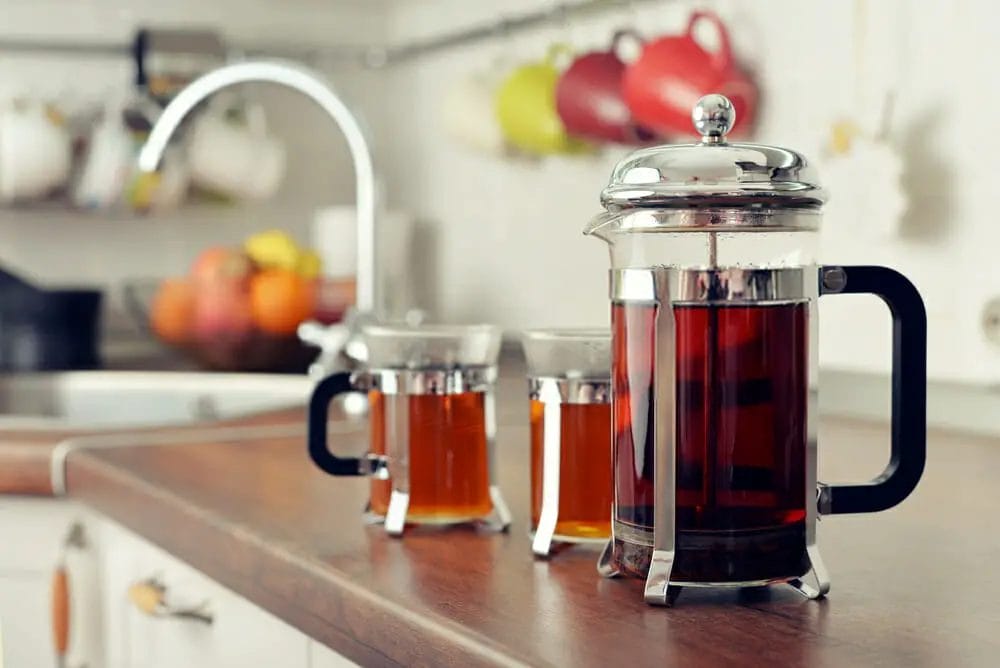
Key Takeaways
- The ideal brew time for French press coffee is 4-5 minutes.
- Coarse grind is recommended to prevent over-extraction and bitterness.
- Water temperature should be 195-205 degrees Fahrenheit.
- Experimentation is key in finding the perfect brew time, as it can vary based on factors such as bean type, grind size, and steeping time.
The Perfect Brew Time for Your French Press
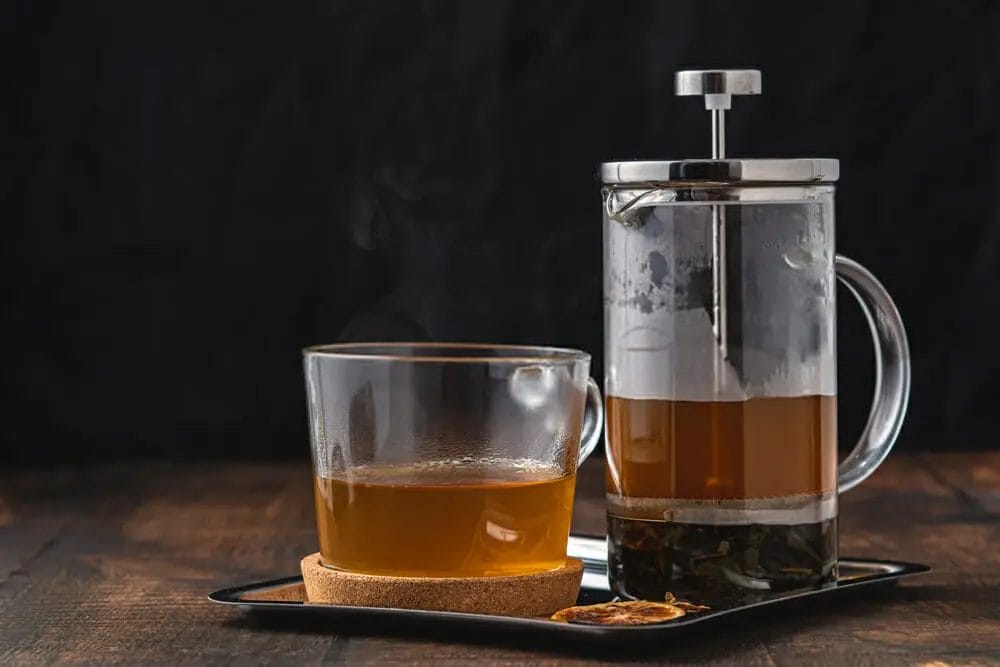
If you want to make the perfect cup of French press coffee, you should aim to brew it for 4-5 minutes.
This is a general rule of thumb, but don’t worry if you need to adjust the time a bit based on your personal preferences and the type of beans you’re using.
To ensure optimal results, start by using a coarse grind for your coffee beans. This will help prevent over-extraction and bitterness that can occur with fine grinds.
Another important factor is water temperature. The ideal temperature for brewing French press coffee is between 195-205 degrees Fahrenheit.
Water that’s too hot can cause a burnt taste, while water that’s too cold can result in weak coffee.
Finally, pay attention to your steeping technique. Let the coffee bloom for about 30 seconds before stirring gently and allowing it to steep for 4-5 minutes before pressing the plunger slowly and evenly.
With these tips in mind, experiment until you find the perfect brew time for your French press coffee!
The French Press: A Quick Overview and Why Brew Time Matters
The French press is a simple yet effective way to extract the full flavor of your coffee beans.
The length of time you steep the grounds plays a crucial role in achieving a rich and satisfying cup.
One factor that can affect brew time is the type of French press variation you’re using.
For example, some models have finer filters that require longer brewing times to achieve optimal extraction.
Others have coarser filters that allow for shorter brewing times.
Brewing techniques also play a role in determining the ideal brew time for your French press coffee.
Some people prefer to use a bloom technique, where they add just enough water to wet the coffee grounds and then let them sit for 30 seconds before adding more water.
Others prefer to stir their coffee once or twice during brewing to ensure an even extraction.
Ultimately, finding the right brewing technique for your taste preferences may take some experimentation.
It’s important to maintain a consistent coffee-to-water ratio when brewing with a French press as this will also impact the overall brew time and flavor profile of your coffee.
The Magic Number: Exploring the 4-5 Minute French Press Brew Time
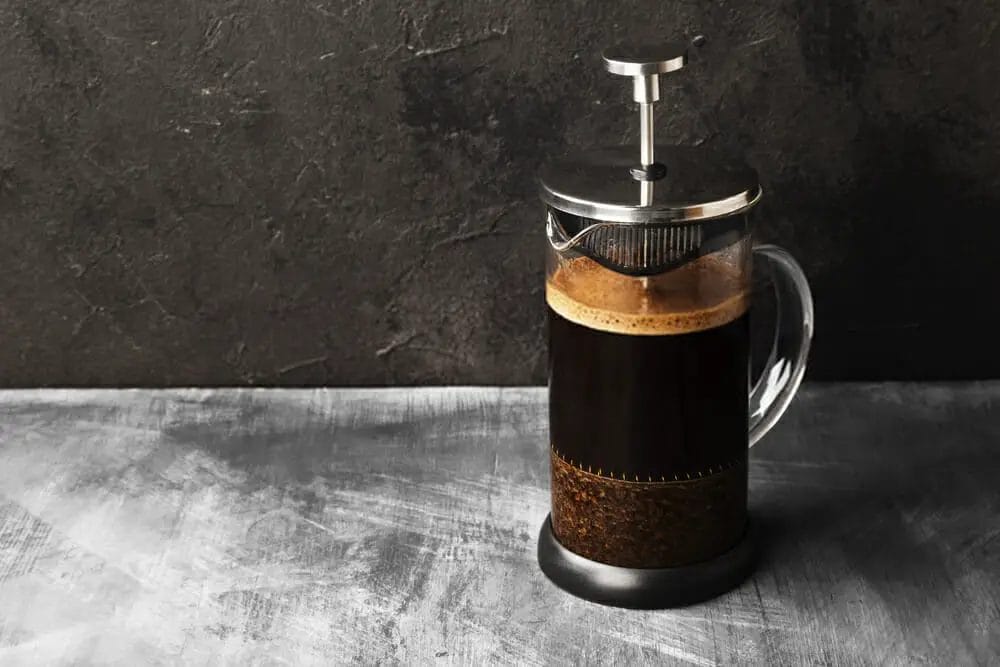
Discover your perfect French press brew time and unlock the full, delectable flavor of your coffee beans.
While the 4-5 minute guideline is a good starting point, it’s important to remember that brewing variables can affect the final taste of your coffee.
Factors such as grind size, water temperature, and type of beans all play a role in determining the ideal brew time for you.
To help you experiment with time and find your perfect brew, here is a table outlining different flavor profiles based on varying brew times:
| Brew Time | Flavor Profile |
|---|---|
| 2 minutes | Weak and sour |
| 3 minutes | Balanced |
| 4 minutes | Strong |
| 5 minutes | Bitter |
Use this as a guide to adjust your brew time as needed. By experimenting with different variables and finding what works best for you, you’ll be able to achieve consistent, delicious French press coffee every time.
So go ahead – take control of your coffee experience and enjoy the freedom of customization.
Consequences of Incorrect Brew Times in French Press Coffee
Achieving the perfect flavor in your morning cup of coffee requires careful attention to the amount of time your grounds spend steeping in hot water.
The consequences of incorrect brew times in French press coffee can lead to either over-extraction risks or under-extraction consequences, resulting in taste variations that may not be desirable.
Over-extracted coffee is a result of brewing for too long. This occurs when the coffee grounds are left steeping for more than 5 minutes, causing the flavors and aromas to become bitter and unpleasant.
On the other hand, under-extracted coffee is a result of brewing for too short a time.
This causes the coffee to be weak and lacking in flavor. Therefore, it’s important to find the ideal brew time by experimenting with different factors such as grind size and personal preferences.
How to Fine-Tune Your French Press Brewing Time
Ready to perfect your morning cup of coffee? Let’s dive into how you can fine-tune your brewing time with a French press.
The first step in finding the perfect brew time is to understand the brewing variables that affect flavor profiles.
Experimentation is key when it comes to finding the right balance between these variables:
- Grind size: A finer grind will result in a longer brew time, while a coarser grind will result in a shorter brew time. Try adjusting your grind size to find the sweet spot.
- Coffee beans: Darker roasted coffee beans generally require a longer brew time than lighter roasted coffee beans. Taste test different types of beans and roasts until you find one that suits your palate.
- Water temperature: Water that’s too hot will result in a bitter cup of coffee, while water that’s too cold will result in a weak cup of coffee. Play around with different water temperatures to see what works best for you.
- Brew time: If the coffee is too bitter, try brewing for a shorter time. If it’s too weak, try brewing for longer.
Remember, taste testing and experimentation are essential when it comes to discovering the perfect brew time for your French press coffee.
Don’t be afraid to adjust these variables until you achieve your desired flavor profile!
Debunking Myths About French Press Brew Times
Myth #1: The ideal brew time for French press coffee is always 4-5 minutes.
Fact: While 4-5 minutes is a common starting point, the ideal brew time can vary depending on factors such as the type of beans and grind size. Different beans and grinds may require more or less time to extract optimal flavors.
Myth #2: Overextraction cannot happen with a French press.
Fact: Overextraction can occur if the coffee is brewed for too long, resulting in a bitter taste. It is important to pay attention to the taste of the coffee as it brews and stop the extraction when it reaches its peak flavor profile.
Myth #3: The brew time should be the same for all coffee beans and grinds.
Fact: Different types of beans and grind sizes have unique characteristics that influence the optimal brew time. Experimentation and adjusting the brew time based on the specific coffee being used can lead to better results.
By debunking these common myths, you can approach French press brewing with a better understanding of the factors that impact brew times and achieve a more satisfying cup of coffee.
To help guide your experimentation process with different brew times and variables, take a look at this table:
| Type of Bean | Grind Size | Starting Brew Time |
|---|---|---|
| Dark Roast | Coarse | 4-6 Minutes |
| Medium Roast | Medium-Coarse | 3-4 Minutes |
| Light Roast | Fine-Medium | 2-3 Minutes |
Keep in mind that these recommendations are only starting points; adjust them according to your personal taste preferences!
FAQs
Conclusion: Savoring the Perfectly Brewed French Press Coffee
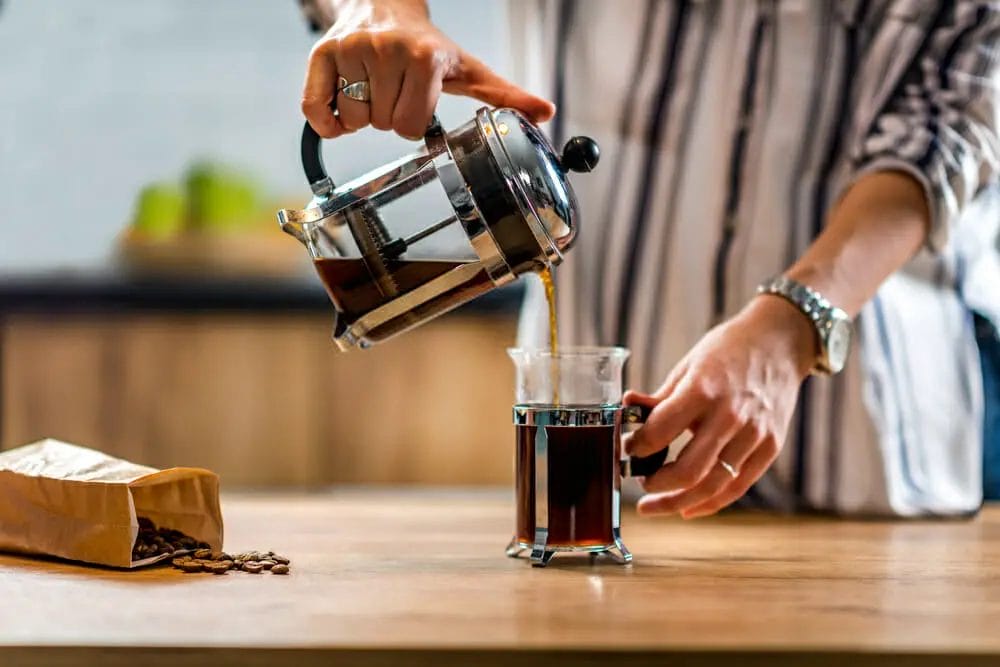
To fully savor the rich and full-bodied flavor of a perfectly brewed French press coffee, it’s important to experiment with different brewing techniques.
Start by using fresh, filtered water and coarsely ground coffee beans. Bloom the coffee grounds for 30 seconds before adding the rest of the water, then let it steep for 4-5 minutes.
Press the plunger slowly and gently to avoid over-extraction or bitterness.
Here are three sub-lists that can help you refine your French press brewing skills based on your flavor preferences:
- Bean type: Experiment with different types of beans such as Arabica or Robusta to find what suits your taste buds best.
- Grind size: Try different grind sizes from coarse to fine, until you achieve a perfect balance between extraction and texture.
- Steeping time: Depending on how strong you like your coffee, adjust the steeping time from 3 to 5 minutes.
By following these tips and experimenting with different variables, you can elevate your French press coffee game and enjoy a perfectly brewed cup every time.
Remember that there’s no single ‘right’ way to brew French press coffee; it all depends on personal preference.
So don’t be afraid to try new things until you find what works best for you!

